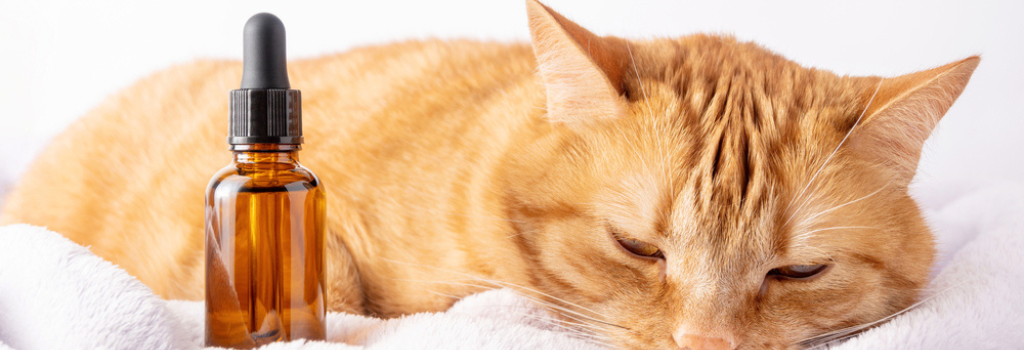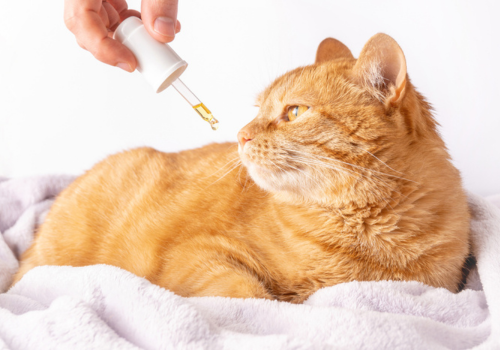Discovered and developed by German physician Dr. Samuel Hahnemann, homeopathy has been around for centuries. Most pet owners have never explored homeopathic and nutraceutical remedies as a means to cure various cat diseases and conditions, and some might even find it an unknown subject. However, with the extensive research that has been devoted to this area over the years, it is safe to conclude that homeopathy and nutraceuticals are extremely effective alternatives and complementary courses of action to address health issues in your cat.
What Is Homeopathy?
To explain the concept of homeopathy, one must first comprehend that it involves viewing your cat’s body as an intricate system of complex components, all connected and collaborative in various aspects. Homeopathy seeks to heal illnesses in cats by considering their body’s response to illness as a way of healing. Contrary to conventional veterinary medicine, homeopathic remedies aim to focus on stimulating your cat’s natural healing response rather than curing the immediate symptoms.
For example, if a cat is running a high fever, a veterinarian would know to prescribe medication that works to lower their temperature. Although entirely valid and justified, homeopathic remedies would instead strive to support the cat’s natural healing systems. The remedies used to accomplish this are derived from plant and animal material, minerals, and microbial sources.
Moreover, homeopathy is based on the premise that the more a remedy is diluted, the more potent it becomes. Although this approach may not seem sensible, there is a great deal of truth to it. That said, determining the appropriate dose required to stimulate the desired reactions in your pet demands an in-depth understanding of a cat’s immune system and which remedies of specific potencies would work best to stimulate your cat’s natural anti-inflammatory and healing agents. Therefore, if you decide to sample homeopathic remedies to improve your cat’s health, it is essential to do so only with the guidance of a reputable homeopath.

What Are Nutraceuticals?
A nutraceutical is described as a non-essential nutrient that provides your cat with health benefits beyond just nutritional value, according to VCA Animal Hospitals. Nutraceuticals are essentially valuable supplements to be used in conjunction with conventional medications to prevent and manage disease in pets. Such supplements are most commonly used because of the few to no side effects they entail.
Nutraceuticals trigger specific chemical reactions in your cat that cannot always be accomplished with regular pharmaceuticals, and their intended use can be for a particular disease or just overall wellness. For instance, general pet medications do not commonly contain silymarin, better known as milk thistle, which is extremely effective in protecting liver cells against a range of damaging effects. The appropriate nutraceutical may contain this agent and be prescribed to elevate your cat's ability to metabolize toxins, thereby enhancing their natural healing abilities.
Are Homeopathic And Nutraceutical Remedies Safe For My Cat?
In general, homeopathic and nutraceutical remedies for cat disease and illness are relatively safe, and the likelihood of toxicity caused directly by such remedies is slim to none, according to The Merck Manual. However, most educated veterinarians would recommend implementing homeopathic and nutraceutical remedies as complementary to modern veterinary medicine to yield optimal results.
An appropriate comparison can be drawn between humans taking vitamin C supplements to combat a respiratory infection in conjunction with their doctor-prescribed antibiotics. The supplement will undoubtedly enhance the body’s ability to fight off the infection, but in most cases, more advanced intervention is also necessary.
If you are considering turning to more holistic means of treating or managing a specific condition in your cat, a learned veterinary homeopath will always prescribe remedies and dosages that are intended to support your cat’s natural systems without causing severe disruptions. Conclusively, homeopathic and nutraceutical remedies have proven to be a safe alternative and supporting aid for cat conditions.
What Are Some Conditions That Can Be Treated With Homeopathic And Nutraceutical Remedies?
Many veterinarians utilize integrative medicine to treat cat conditions ranging from serious diseases, such as cancer, to more mild yet undesirable conditions, like chronic pain. Cat liver and lung cancer, in particular, are commonly treated with conventional methods, like chemotherapy, in combination with homeopathy and nutraceuticals. This combined intervention has shown dramatic improvements in cat health and longevity, according to Cat Time.

In the wider cat population, both chronic and acute conditions are eligible for homeopathic and nutraceutical intervention. VCA Animal Hospitals identify the following conditions as benefiting greatly from such alternative treatments:
- Allergies
- Injuries
- Skin issues
- Respiratory issues
- Organ disease
- Cancer
- Musculoskeletal problems
- Arthritis
- Digestive disorders
- Infectious diseases
Homeopathic and nutraceutical remedies can be a greatly beneficial addition to your cat’s current health regimen and have proven to improve the health and wellbeing of cats suffering from a range of conditions and illnesses, from chronic pain to cancer. Although relatively new to veterinary medicine, these holistic approaches have been used in differing forms for centuries.
If your cat is not responding to their treatment optimally or still showcasing some symptoms you think may benefit from alternative treatments, speak to your dedicated veterinarian today to explore homeopathic and nutraceutical options. Based on your cat’s unique circumstances, your veterinarian will be able to provide you with all the insights and fact-based advice you need to make an informed decision.
At Lifetime Veterinary Center, your pet is our priority. If you have any questions, don't hesitate to call our team at (561) 799-7717 , or you can email us at [email protected]. Our staff would love to talk with you!
Don't forget to follow us on social media: Facebook, Instagram.

